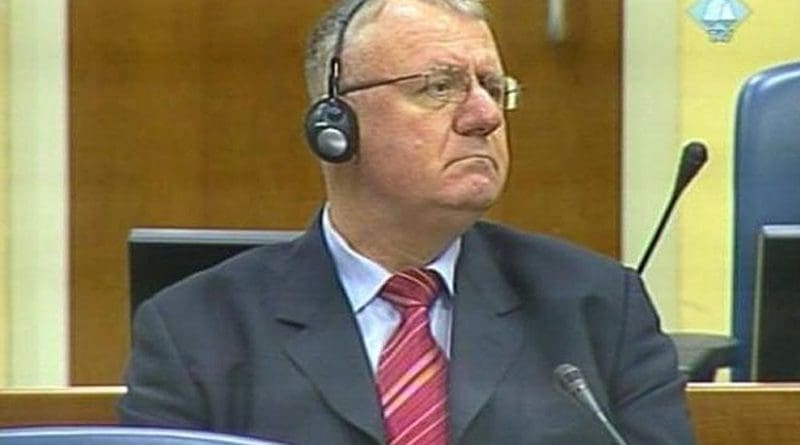Seselj Conviction Leaves War Victims Dissatisfied
By Denis Dzidic and Filip Rudic
There was dissatisfaction in Sarajevo and Zagreb after Serbian Radical Party leader Vojislav Seselj was convicted of wartime crimes in Serbia but cleared of wrongdoing in Bosnia and Croatia.
Bosnian war victims expressed mixed feelings about Wednesday’s appeals ruling by the UN’s Mechanism for International Criminal Tribunals in The Hague, which exonerated nationalist politician Seselj of wartime crimes in Bosnia and Croatia.
Jasmin Meskovic from the Association of Former Camp Detainees in Bosnia and Herzegovina said he was pleased that Seselj will be marked as a war criminal for his actions in Serbia.
“However, I cannot accept they failed to fix the mistakes of the original verdict and left the crimes in Bosnia and Herzegovina unpunished,” said Meskovic.
Bakira Hasecic from the Women – Victims of War association said that Seselj’s sentence was not severe enough. He was sentenced to ten years but will not serve it because of the 11 years he has already spent in custody in The Hague.
“This is a very bad decision that completely excludes his responsibility for Bosnia and Herzegovina,” said Hasecic.
Bakir Izetbegovic, the Bosniak member of the Bosnian tripartite presidency, expressed similar sentiments.
“Even though no one can be satisfied with this symbolic verdict, history will recall that Seselj is a war criminal,” Izetbegovic told BIRN.
Bojan Glavasevic, a Croatian opposition MP and former assistant to the War Veterans’ Minister, said that justice was not served with the final verdict for Seselj.
“Unfortunately, it happened just as I expected. Maybe the law was observed, but justice wasn’t. He was sentenced to ten years; he served 11,” Glavasevic told N1 TV.
“What we have is some sort of moral satisfaction. Earlier we said he was a war criminal; that is undeniable now. But there is no justice for the victims,” he added.
In Wednesday’s appeals verdict, Seselj was convicted of inciting crimes with nationalist speeches he made in the village of Hrtkovici in the Vojvodina region of Serbia during the war in 1992. His speeches were followed by violence against Croat civilians.
Hague Tribunal prosecutors said they welcomed the judges’ decision.
“We believe it is extremely important that the appeals chamber overturned his acquittal and found Vojislav Seselj of instigating war crimes through his speech in Hrtkovci in 1992,” said Aleksandar Kontic from the prosecutor’s office.
The Bosniak presidency member’s envoy to the Hague prosecution, Amir Ahmic, told BIRN that the decision to convict Seselj was correct.
“I am not happy however that they ruled he was not responsible for crimes in Zvornik [in Bosnia],” said Ahmic.
Seselj refused to accept the legality of the verdict and again mocked the UN court, as he has done throughout the proceedings.
“I accept these so called crimes and look forward to repeating them in the future,” Seselj told BIRN sarcastically.
The Youth Initiative for Human Rights, a Serbian NGO, asked the Serbian parliament to rule that Vojislav Seselj’s term as an MP is now over, citing a law that says an MP’s term ends if he or she is sentenced to spend at least six months in prison.
“Considering Seselj was sentenced to 10 years, and that the verdicts of the Appeals Council of the Mechanism for International Criminal Tribunals are legally binding for Serbia, Vojislav Seselj’s term as an MP must end,” the YIHR said in a press release.
Meanwhile Ivo Komsic, the former mayor of Sarajevo, where Seselj was born in 1954, expressed dissatisfaction with the fact that the Serbian Radical Party MP was not in jail.
“He is such a criminal and he has caused so much suffering that he should not be free today,” said Komsic.
A spokesperson for the UN court, Helena Eggleston, said that the verdict is final and that Seselj now only has the right to request a review of the case if new evidence is uncovered.

